October 30, 2024
Three teams led by Weill Cornell Medicine scientists have received awards from the Starr Cancer Consortium in its 17th and final annual grant competition. The grants will fund research on the deep mechanisms of common cancers and related treatment strategies.
October 22, 2024
Dr. Massimo Loda, chair of the Department of Pathology and Laboratory Medicine and the David D. Thompson Professor at Weill Cornell Medicine, has been elected to the National Academy of Medicine.One of the most prestigious honors in health and medicine, the academy recognizes individuals who have demonstrated outstanding professional achievement and made major contributions to advancing the medical sciences, health care and public health.

October 18, 2024
It may soon be possible to determine which patients with a type of liver cancer called hepatocellular carcinoma would benefit from immunotherapy, according to a preclinical study by Weill Cornell Medicine investigators.
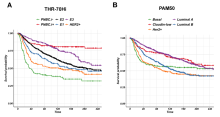
A triple hormone receptor ER, AR, and VDR signature is a robust prognosis predictor in breast cancer
September 17, 2024
New research from investigators at Weill Cornell Medicine presents significant advancements in breast cancer prognostication. The study, published in Breast Cancer Research and led by
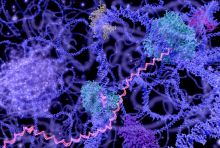
August 16, 2024
Weill Cornell Medicine has received a five-year, $12.4 million grant from the National Cancer Institute, part of the National Institutes of Health, for an extensive program of basic and translational research on the biology of diffuse large B-cell lymphoma (DLBCL), the most common form of lymphoma.
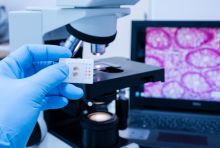
July 9, 2024
Scientists from Weill Cornell Medicine and the Dana-Farber Cancer Institute in Boston have developed and tested new artificial intelligence (AI) tools tailored to digital pathology—a rapidly growing field that uses high-resolution digital images created from tissue samples to help diagnose disease and guide treatment.
June 27, 2024
Weill Cornell Medicine received a $1.5 million grant from the U.S. Department of Defense Prostate Cancer Research Program to develop new approaches for predicting the spread of cancer cells to the bone in men with prostate cancer, using tumor samples taken at early stages of the disease.
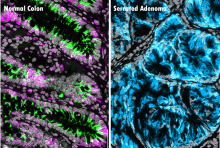
May 29, 2024
Research led by Weill Cornell Medicine provides new evidence that most colorectal cancers begin with the loss of intestinal stem cells, even before cancer-causing genetic alterations appear. The results, published on May 29 in Developmental Cell, overturn the prevailing theory for colorectal tumor initiation and suggest new ways to diagnose the disease before it has a chance to become established.
May 10, 2024
A team led by Dr. Eddie Imada, assistant professor of research in pathology and laboratory medicine, has been awarded a three-year, $1.5 million United States Department of Defense grant for research on a cellular process called alternative polyadenylation and its role in prostate cancer.
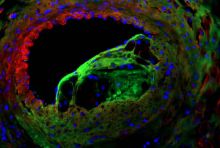
April 23, 2024
Weill Cornell Medicine investigators have uncovered a way to unleash in blood vessels the protective effects of a type of fat-related molecule known as a sphingolipid, suggesting a promising new strategy for the treatment of coronary artery disease.

